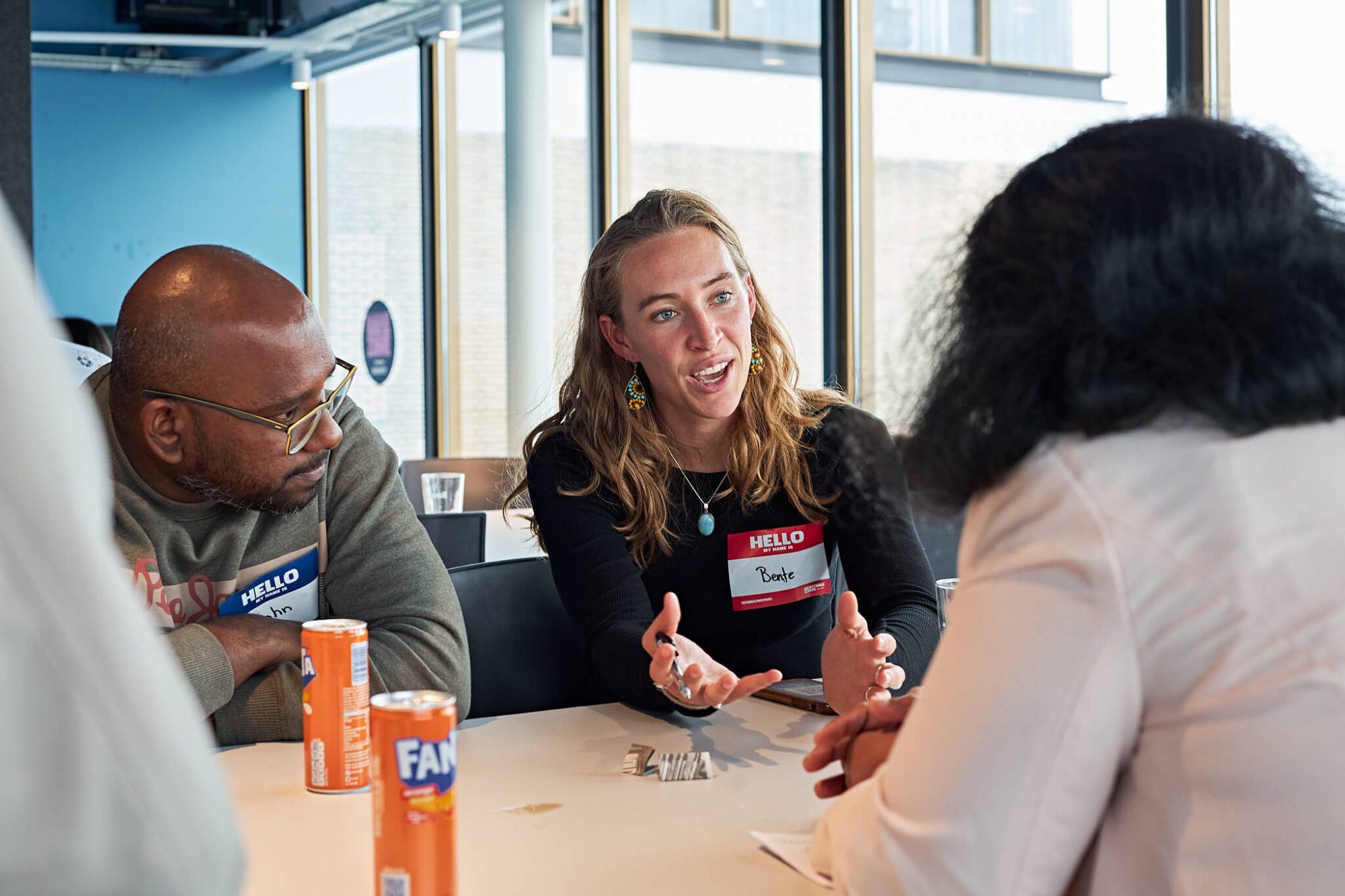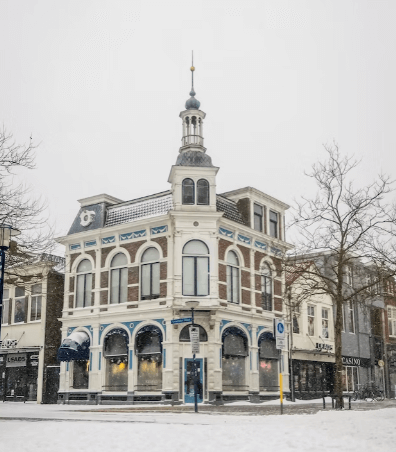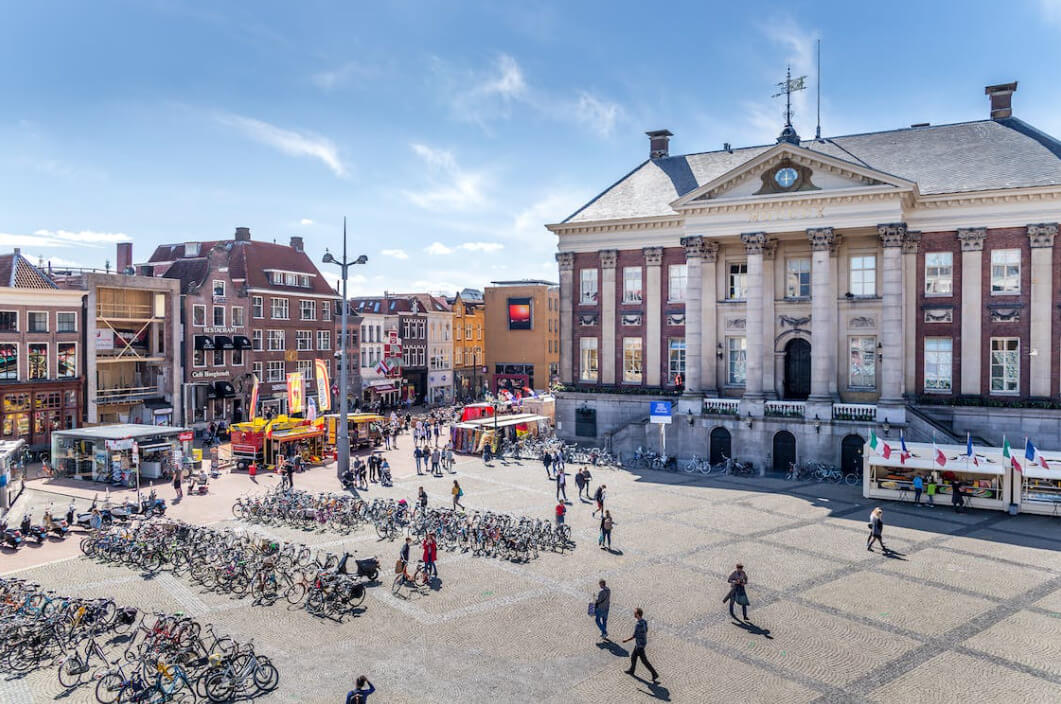Northern Dutch working culture
When it comes to working in the Northern Netherlands, you’ll quickly notice that the Dutch are as direct in the workplace as they are in everyday life. However, you might be surprised by the flexible hierarchy and informality that characterises many Northern Dutch small and medium-sized enterprises (SMEs). These companies, which often have fewer than 250 employees (and many even fewer than 50), operate with a unique blend of structure and openness. Let’s dive into some key aspects of the Northern Dutch working culture.

1. Working hours
- Arriving and leaving on time: In the Netherlands, punctuality is not just appreciated — it’s expected. Arriving on time for work and meetings is a must. Equally important is knowing that you can expect your colleagues to leave on time.
- Work-life balance is highly valued here, and most Dutch employees prefer to keep their professional and personal lives separate. Don’t be surprised if colleagues are unavailable for work-related calls or emails outside of office hours — home time is considered sacred.
- Work hours: The standard workweek usually consists of 36, 38, or 40 hours, spread across five days.
- Lunch breaks generally last between 30 and 60 minutes, during which it’s typical to take a walk and chat with colleagues — yes, in the Netherlands, walking and talking often go hand in hand! Most Dutch people take their ‘broodje’ from home (sandwich with basic toppings like cheese or ham) and most companies don’t have a catered canteen.
2. Feedback
- Receiving feedback: When you receive feedback in the Netherlands, it’s important to listen carefully and ask clarifying questions rather than immediately jumping to a defense. This shows that you’re open to learning and fully understanding the feedback given. More often than not, feedback is given in good faith and is mostly centred around your actual work. So don’t take things too personally and instead use the feedback to improve the quality of your work.
- Giving feedback: Dutch people are known for being direct and pragmatic, especially when giving feedback. They will expect this from you as well. The key is to be honest and straightforward, but always respectful. Avoid being overly harsh or rude.
- “Polderen”: This uniquely Dutch approach to decision-making emphasises consensus and collaboration. While managers and directors are the final decision-makers, they greatly value the input of their colleagues and often strive to reach a decision that everyone can support. So when you’re asked for your opinion, this isn’t simply a formality, voice your thoughts and show off your creativity!
3. Work meetings
- Punctuality is key: As with other aspects of Dutch work culture, arriving on time for meetings is crucial. If you’re running late, it’s important to inform the person waiting for you, as they likely have a tight schedule. Arriving late makes you come across as disrespectful or unreliable, as it signals you don’t value the person’s time as much as your own.

- Structured and focused discussions: Meetings in the Netherlands tend to be more formal and structured compared to everyday interactions. Discussions are expected to stay on topic and closely follow the agenda. This ensures that meetings are efficient and productive.
4. Flat hierarchy but professional communication
- Open communication with management: One of the notable aspects of Dutch work culture is its flat hierarchy. It’s not uncommon for employees to walk right into their boss’s office to discuss work matters — or the boss might not even have a separate office, preferring to work alongside the team.
- Strong work ethic: Dutch employees take pride in their work and are motivated to do a good job, regardless of whether the boss is watching. They value taking personal responsibility and delivering on their commitments. Proactivity is not just appreciated, it’s expected.
- Literal communication: In the Netherlands, people tend to take things literally and expect honesty in communication. Avoid making promises you can’t keep and steer clear of exaggerating claims, as this could lead to misunderstandings.
🎂 In the Netherlands, you bring the party!
If it's your birthday, it's common to bring any kind of sweet treat to the office. If you bring enough for your own team, you're good. You could also bring more smaller treats and put them in the canteen area or coffee corner for everyone in your department, floor or company.
5. Work Outings
- “Vrijmibo”: Short for vrijdagmiddagborrel (Friday afternoon drinks), this tradition involves colleagues gathering for drinks at the end of the workweek. It’s a casual affair, and while having a drink is common, it’s perfectly acceptable not to drink at all. Just remember to enjoy yourself, but avoid overindulging.
- “Heidag”: Literally translating to "heath day," this is a day spent away from the office, often in a more relaxed, natural setting, where teams engage in brainstorming and strategic planning sessions. It’s a chance to step back from daily routines and focus on the bigger picture.
- “Bedrijfsuitje”: This refers to a company outing or team-building event. These outings are designed to strengthen team bonds and usually involve a fun activity, such as sports, games, or even a trip. Expect a mix of work-related and leisure activities, and remember to participate actively to get the most out of the experience.
It’s impossible to know everything about Dutch working culture right away, and that’s totally fine. If you’re ever unsure about something, just ask! The Dutch value openness and clarity, so asking questions is always a good strategy for navigating your new work environment.







